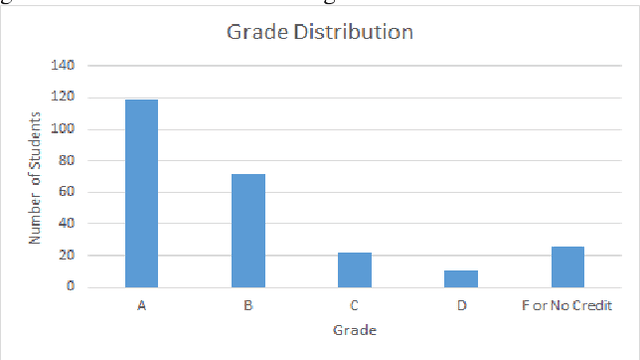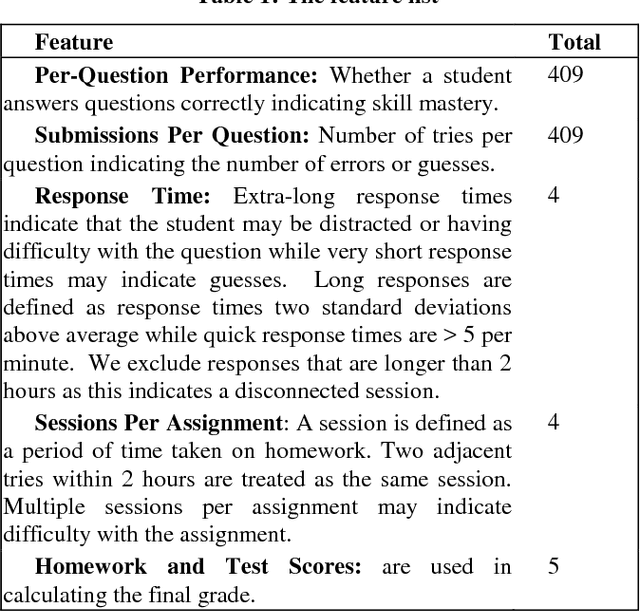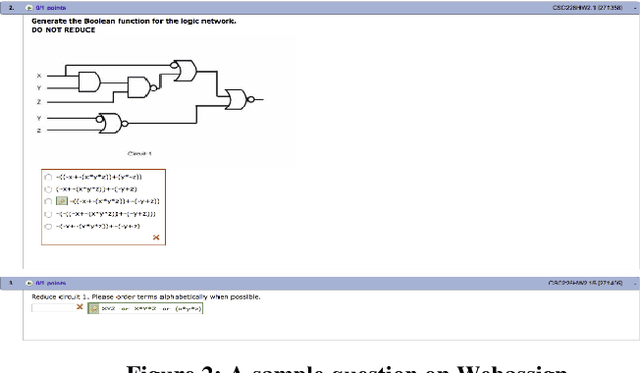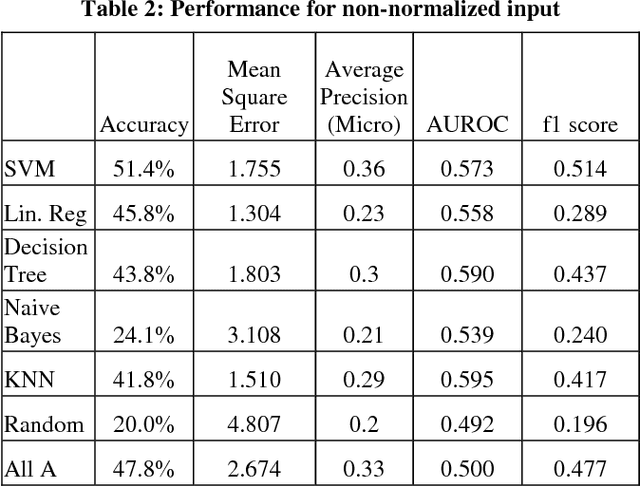Get our free extension to see links to code for papers anywhere online!Free add-on: code for papers everywhere!Free add-on: See code for papers anywhere!
Hengxuan Li
Early Prediction of Course Grades: Models and Feature Selection
Dec 03, 2018Figures and Tables:







Abstract:In this paper, we compare predictive models for students' final performance in a blended course using a set of generic features collected from the first six weeks of class. These features were extracted from students' online homework submission logs as well as other online actions. We compare the effectiveness of 5 different ML algorithms (SVMs, Support Vector Regression, Decision Tree, Naive Bayes and K-Nearest Neighbor). We found that SVMs outperform other models and improve when compared to the baseline. This study demonstrates feasible implementations for predictive models that rely on common data from blended courses that can be used to monitor students' progress and to tailor instruction.
* The Proceedings of the 11th International Conference on
Educational Data Mining (EDM 2018). 492-495
Via
 Add to Chrome
Add to Chrome Add to Firefox
Add to Firefox Add to Edge
Add to Edge